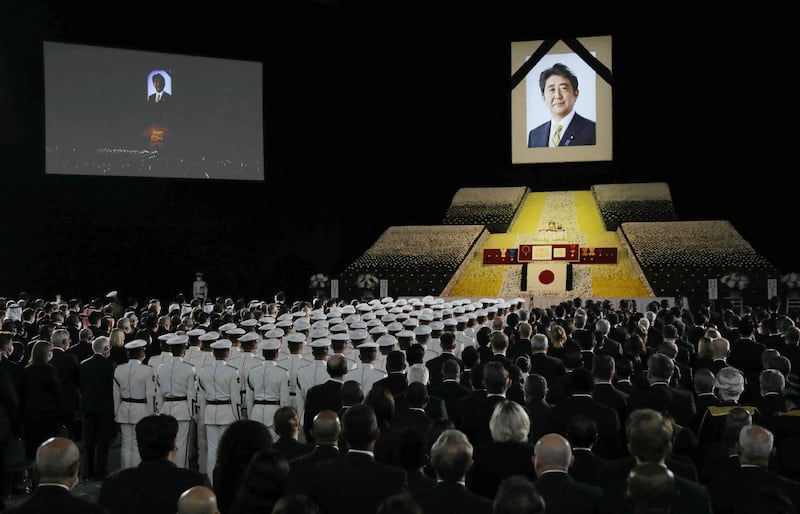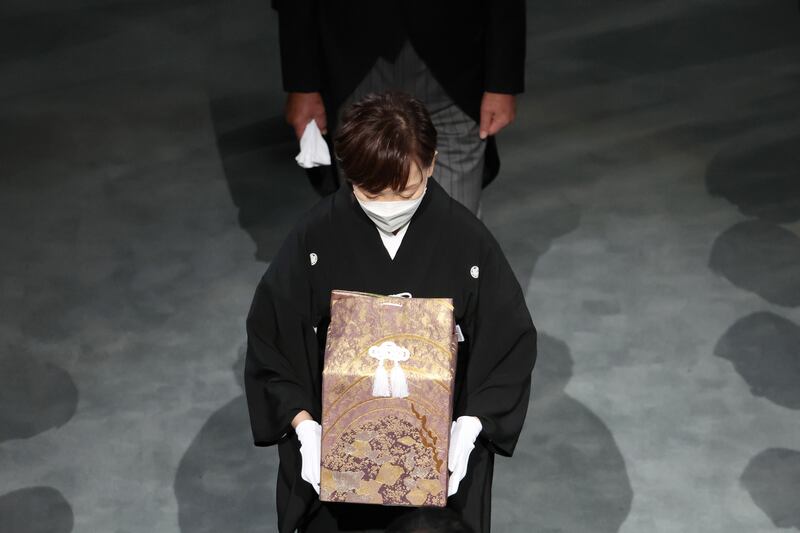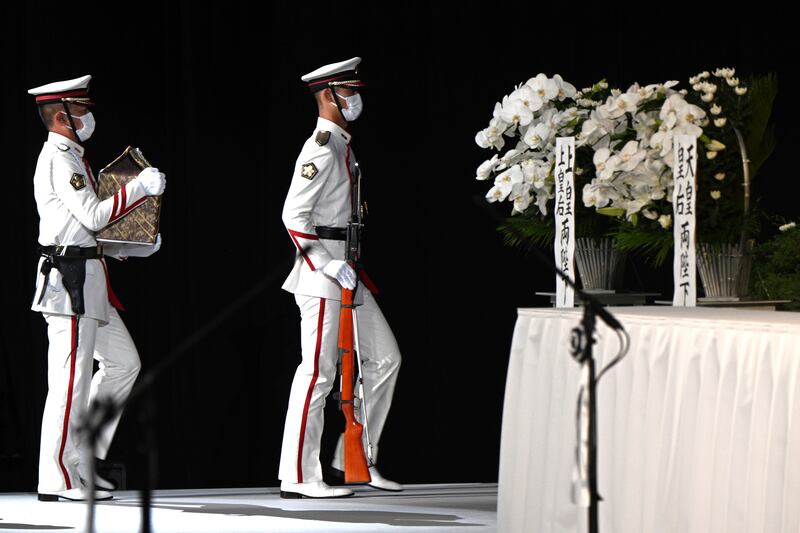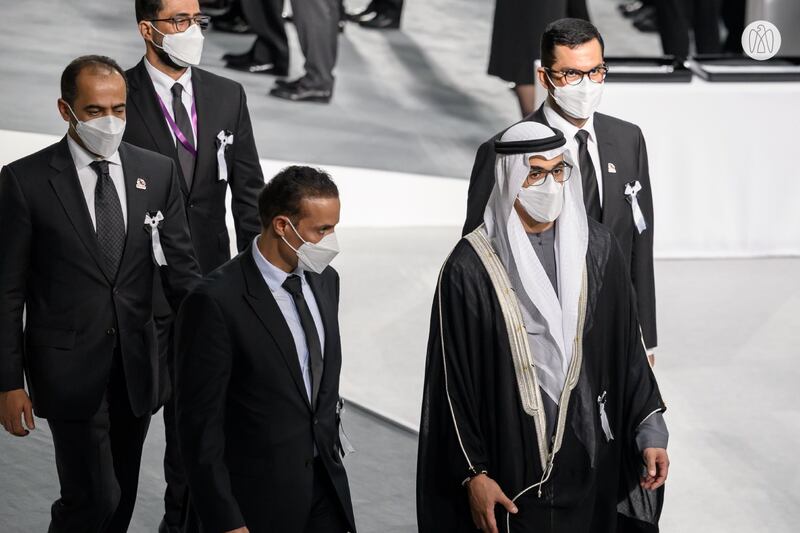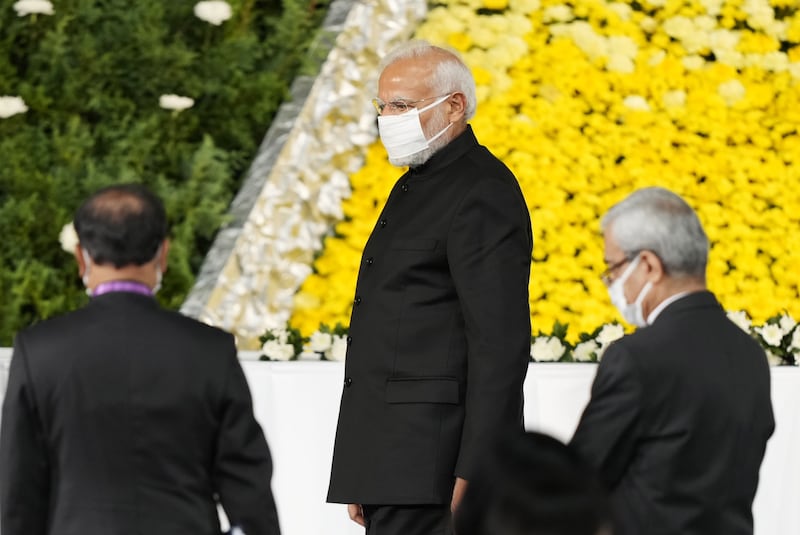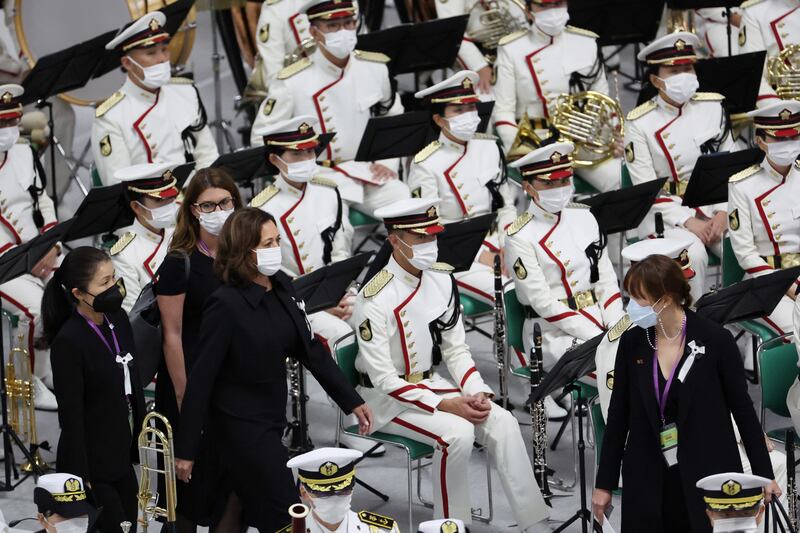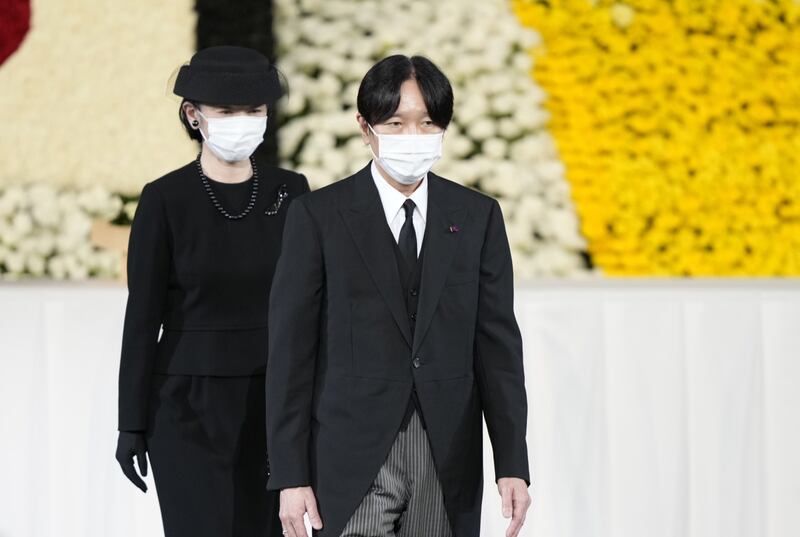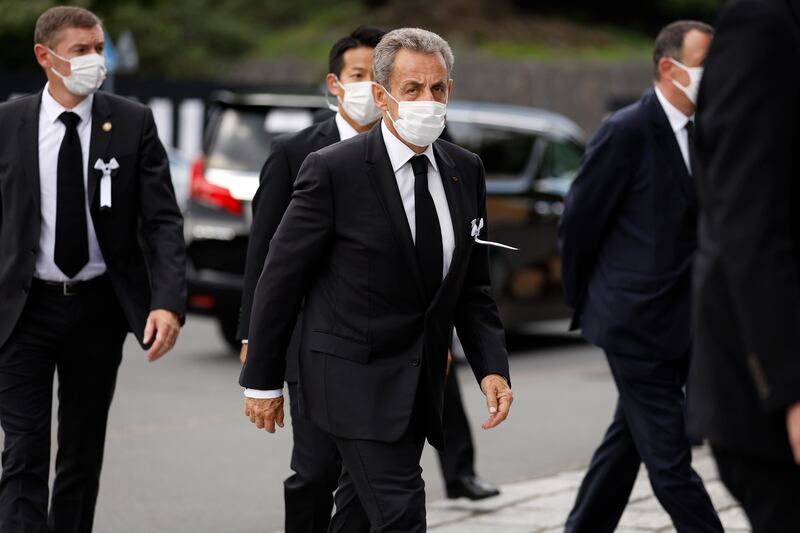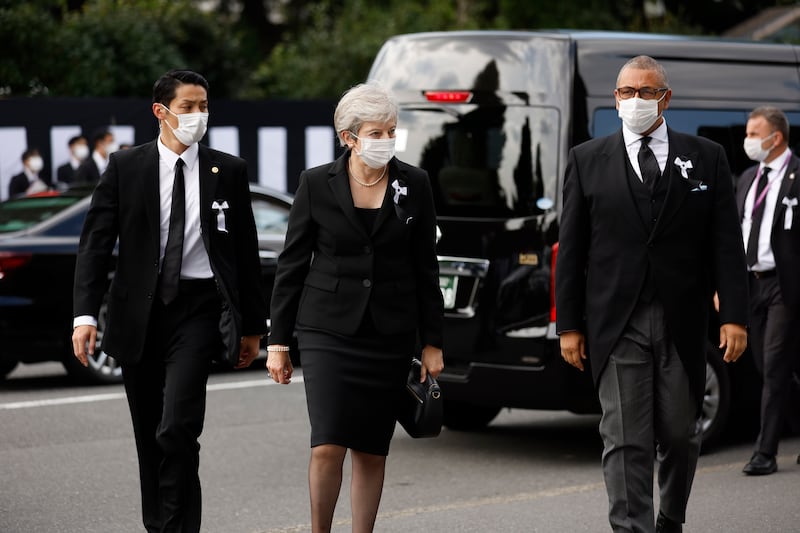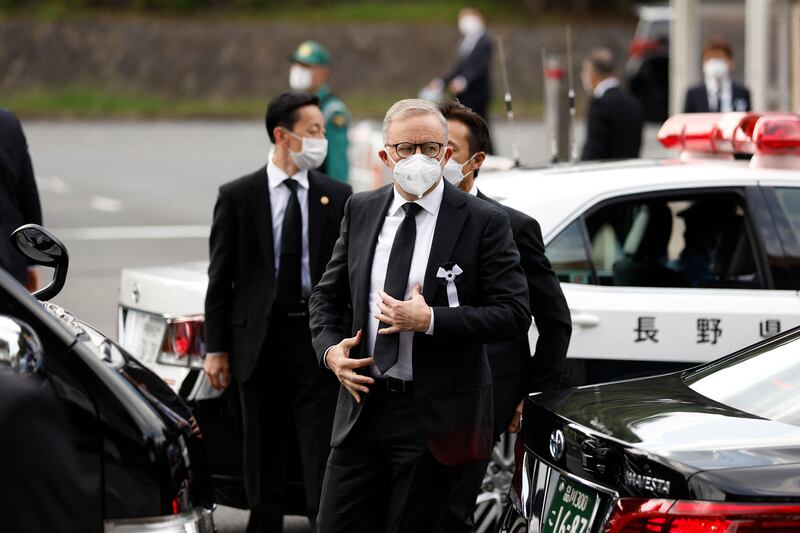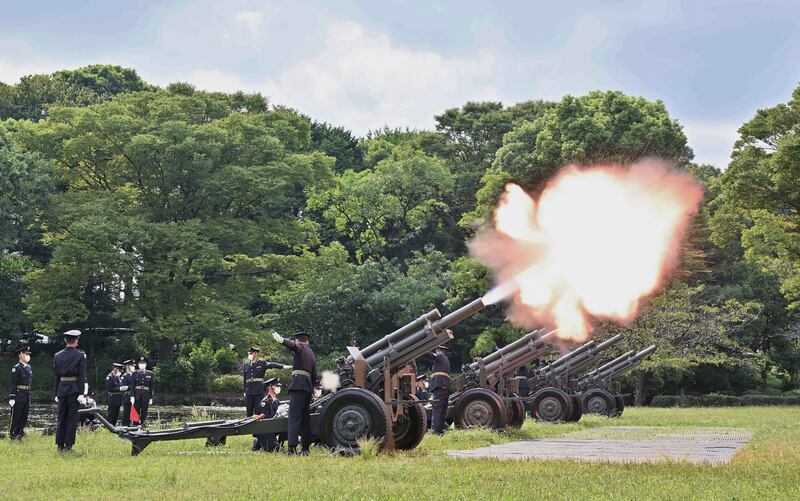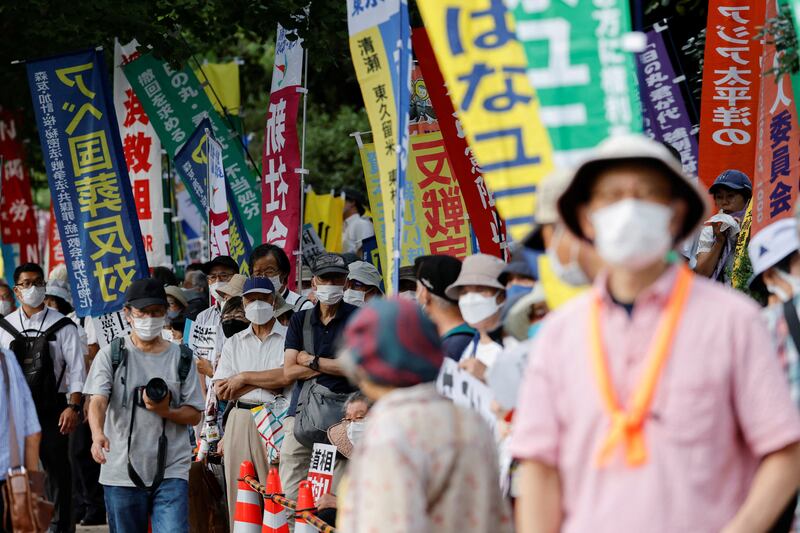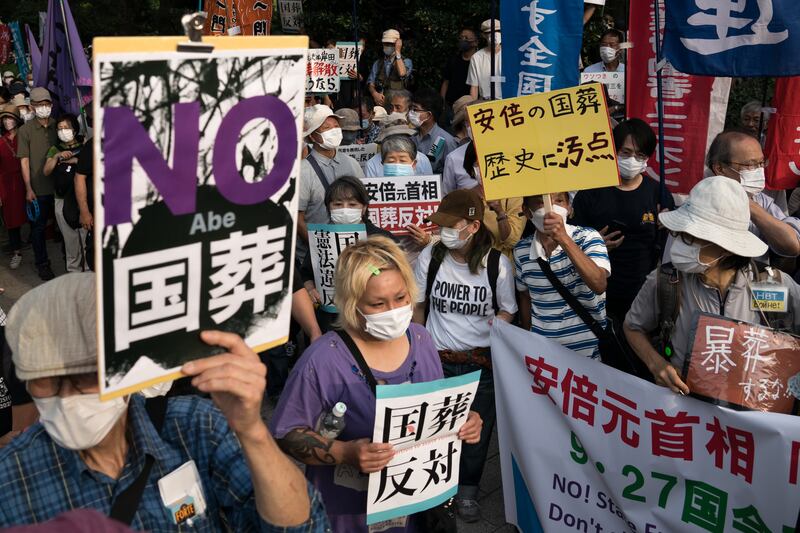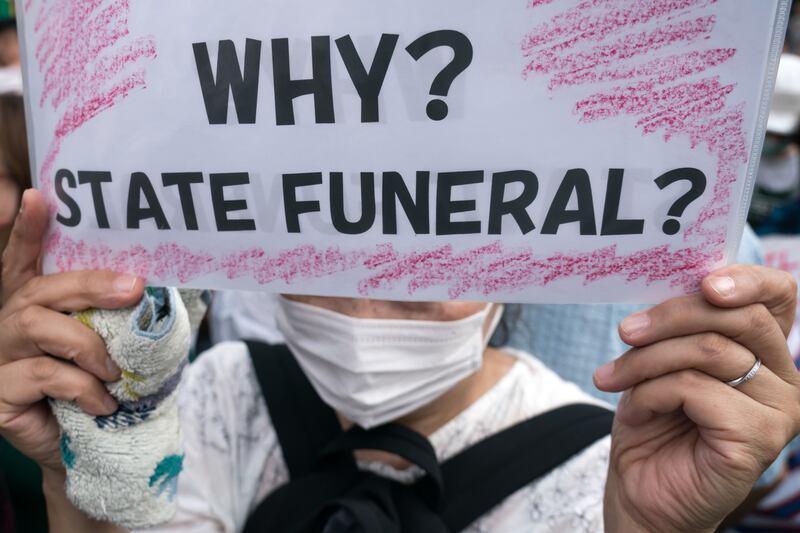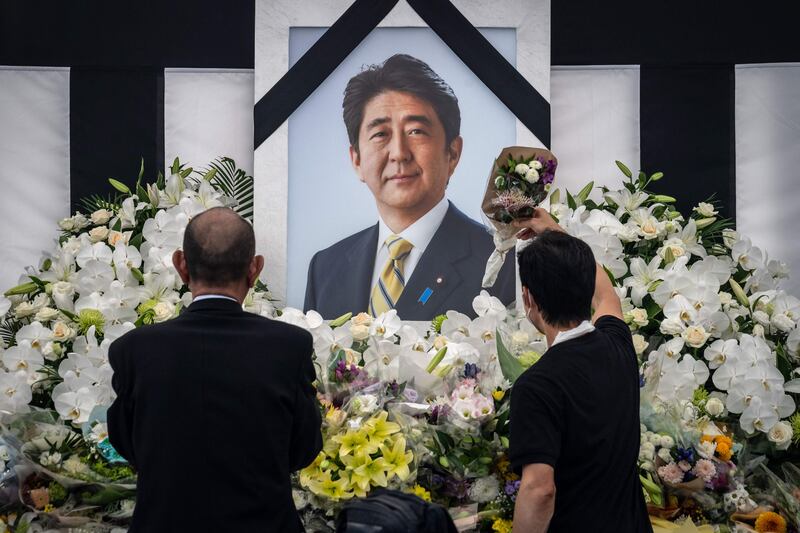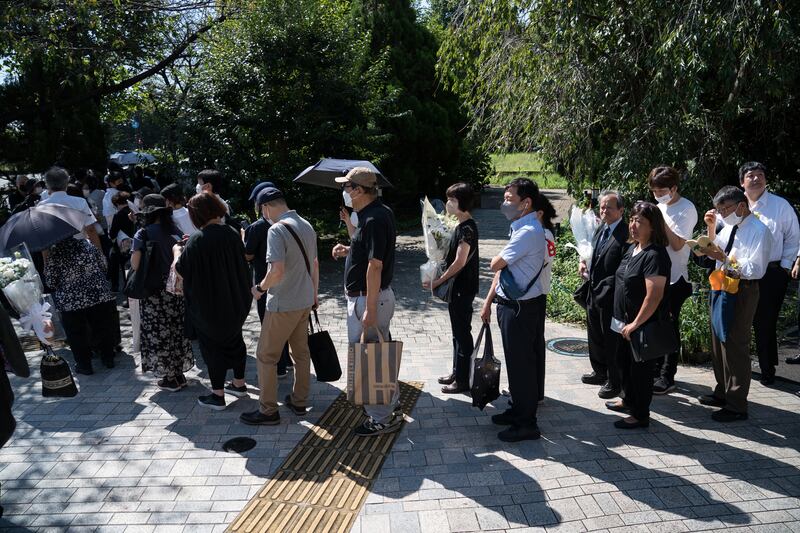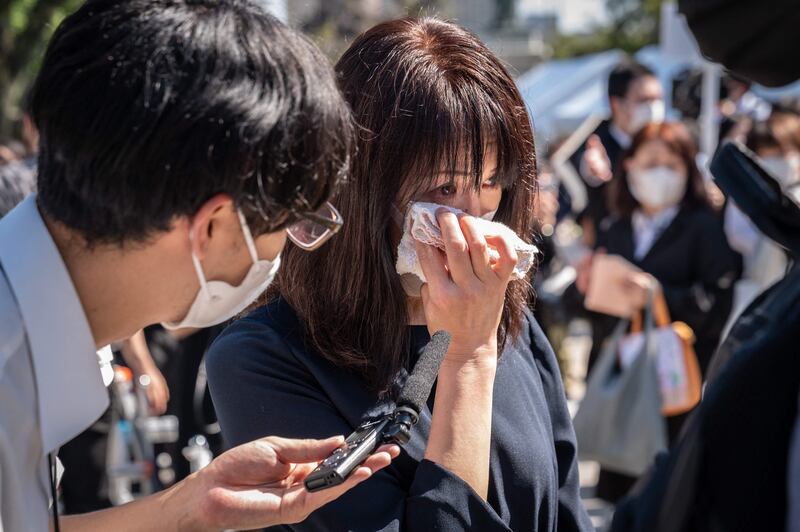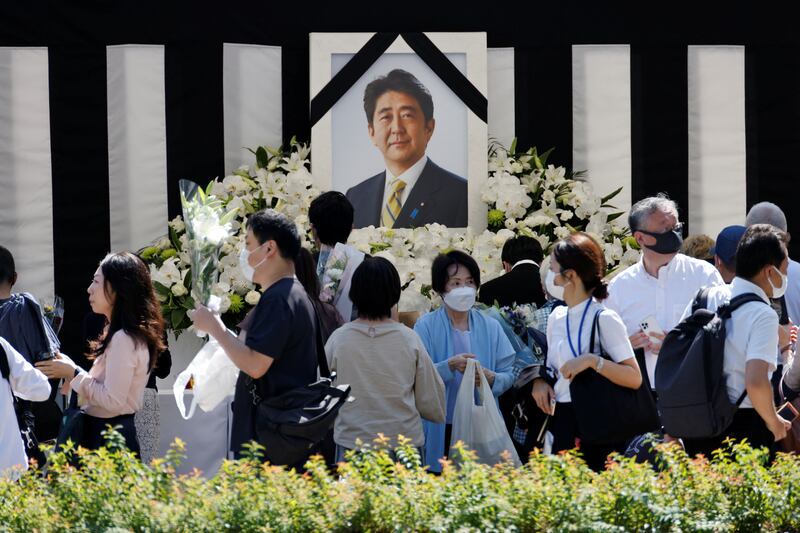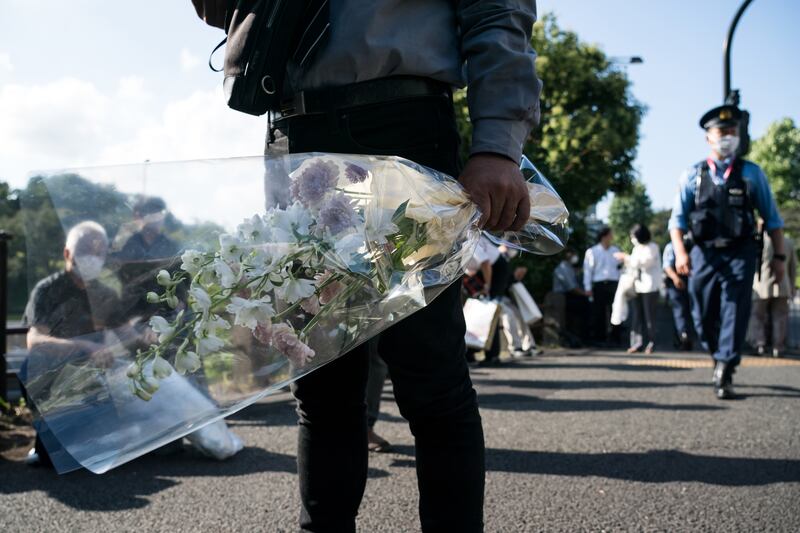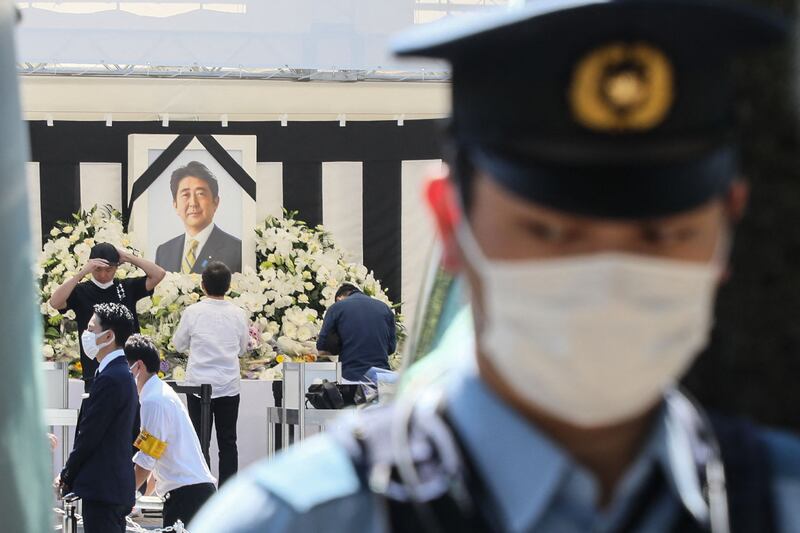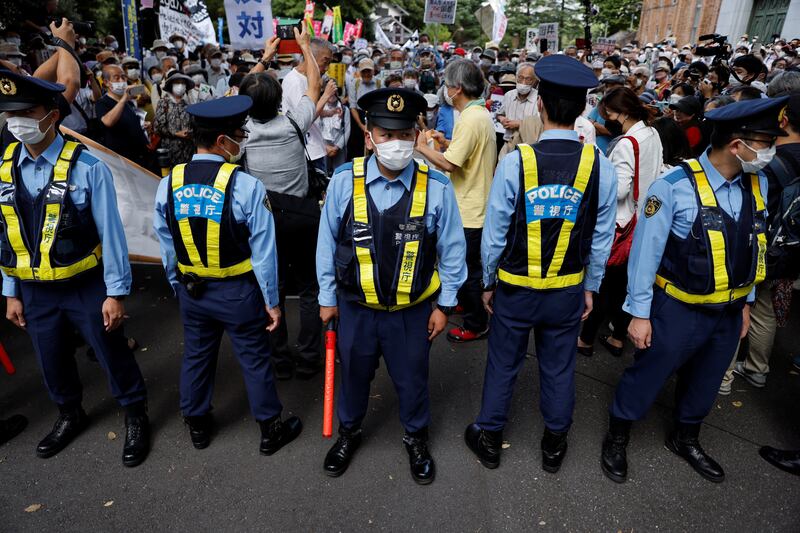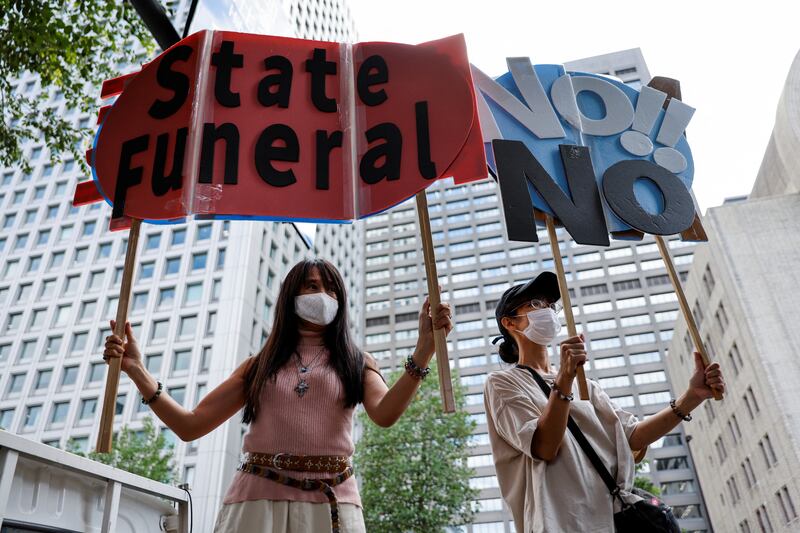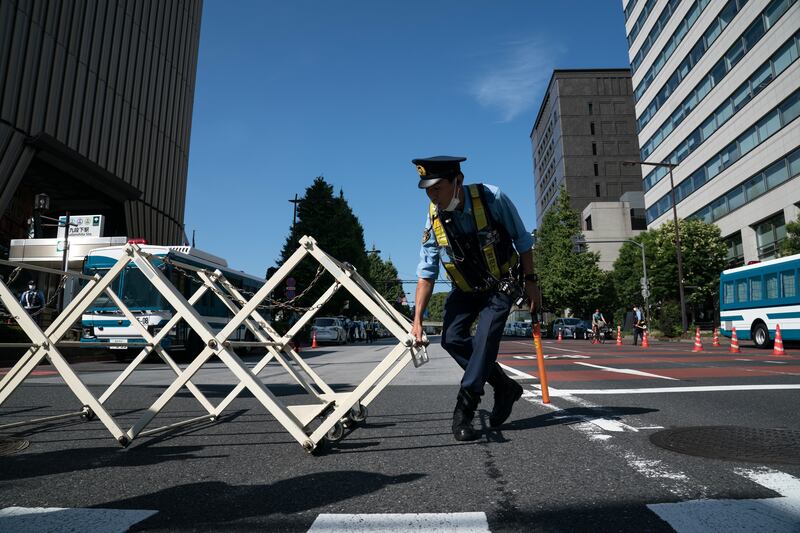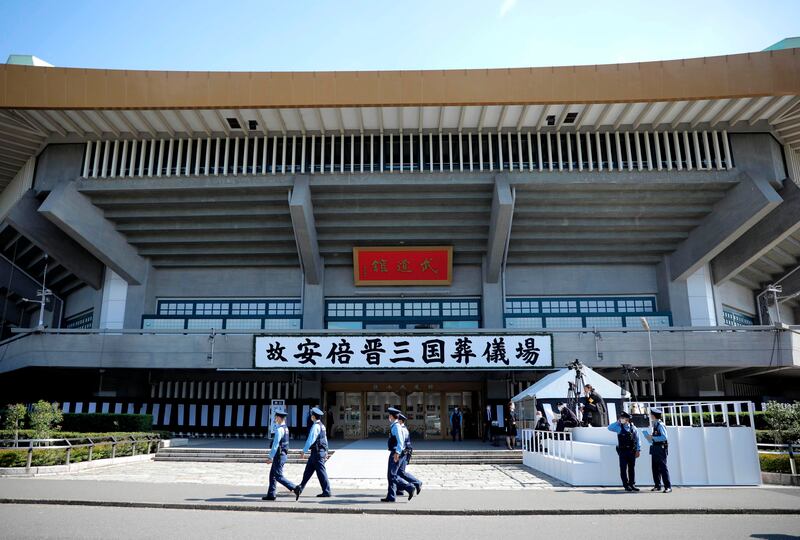Japan held the controversial state funeral for assassinated former prime minister Shinzo Abe on Tuesday — with Tokyo under maximum security.
Protests opposing the funeral took place across Japan for the longest-serving leader in its modern history and one of the most divisive.
Thousands of uniformed police were stationed around the Budokan hall, where the funeral was held, and at major train stations.
Hours before the ceremony began, dozens of people carrying bouquets queued at public flower-laying stands at nearby Kudanzaka Park.
Abe was delivering a speech near a train station in the western city of Nara when he was shot dead by an assailant, Tetsuya Yamagami, on July 8. It was the first assassination of a sitting or former Japanese prime minister since the 1930s. He was 67.
The funeral service began with Abe's widow Akie entering the Budokan hall carrying the ashes of her late husband, before passing them to Prime Minister Fumio Kishida.
Sheikh Khaled bin Mohamed, member of the Abu Dhabi Executive Council and chairman of the Abu Dhabi Executive Office, headed the UAE's delegation at the funeral. He conveyed the condolences of President Sheikh Mohamed and Sheikh Mohammed bin Rashid, Vice President and Ruler of Dubai, to the Japanese government.
World leaders including US Vice President Kamala Harris, India's Prime Minister Narendra Modi and Bahrain's Crown Prince Salman bin Hamad attended the funeral with about 4,300 others and laid floral tributes to their late ally.
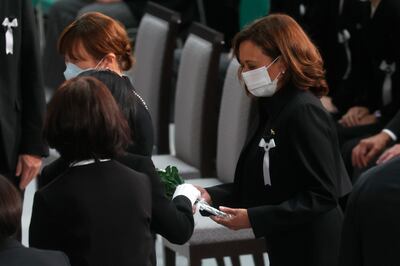
Mr Modi, who called the Japanese leader a "dear friend”, met Mr Kishida before the funeral. He underlined the contributions of Abe in strengthening the India-Japan partnership, as well his vision of a free, open and inclusive Indo-Pacific region — an alternative name for the Asia-Pacific region where a US-backed alliance is challenging Chinese influence.
“I conveyed my condolences on the tragic demise of former PM Shinzo Abe,” Mr Modi said.
Abe and Mr Modi shared a special relationship. From backing India's nuclear deal to lending diplomatic support and economic infrastructure development, he was considered a reliable friend of New Delhi during his tenure.
Japan's former prime minister Yoshihide Suga praised Abe's international outlook.
“You always said you wanted to make Japan better, that you wanted young people to have hope and pride,” Mr Suga said.
Mr Kishida expressed shock at Abe's early death.
“I had a firm belief that you were to contribute as a compass to show the future direction of Japan and the rest of the world for 10 or 20 more years,” he told the gathered mourners.
But Japan's opposition parties boycotted the funeral.
Opponents of the state-sponsored funeral, which has its roots in pre-war imperial ceremonies, say taxpayers’ money should be spent on more meaningful causes. These include addressing widening economic disparities caused by Abe’s policies.
Mr Kishida has been criticised for forcing through the costly event to honour his mentor.
There has also been a growing controversy about Abe’s and the governing party’s decades-long close ties with the ultra-conservative Unification Church, accused of raking in huge donations by brainwashing adherents.
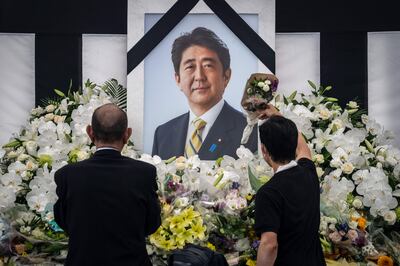
Abe’s alleged assassin reportedly told police he killed the politician because of his links to the church. He said his mother ruined his life by giving away the family’s money to the church.
Mr Kishida said Abe deserved a state funeral.
The government also maintained that the ceremony was not meant to force anyone to honour Abe.
Most of the nation’s 47 prefectural governments, however, flew national flags at half-mast and observed a moment of silence.
Opponents say Mr Kishida’s one-sided decision, which was made without parliamentary approval, was undemocratic and a reminder of how prewar imperialist governments used state funerals to fan nationalism.
The prewar funeral law was abolished after the Second World War. The only postwar state funeral for a political leader, Shigeru Yoshida in 1967, faced similar criticism.
“Spending our valuable tax money on a state funeral with no legal basis is an act that tramples on the constitution,” protest organiser Takakage Fujita said on Monday.
About 1.7 billion yen ($11.8 million) was needed for the venue, security, transportation and accommodation for the guests, the government said.
